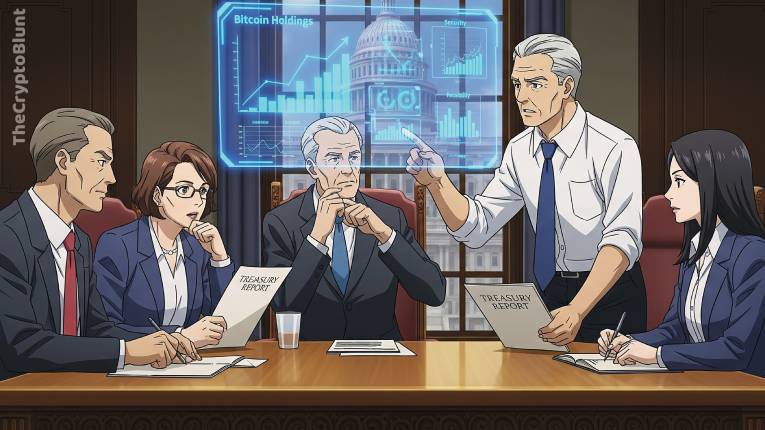The House spending bill aims to direct the Treasury to assess the feasibility and governance of a Strategic Bitcoin Reserve.
Two sections of a U.S. House appropriations bill were filed on Friday. They seek to require the Treasury Department to study the feasibility of a Strategic Bitcoin Reserve and outline custody, cybersecurity, and accounting for government-held digital assets.
The bill, which was reported by Representative David Joyce (R-OH), was approved by the House Appropriations Committee. On September 5, it was placed on the Union Calendar, the docket for House measures involving spending and revenue that are eligible for floor consideration.
The congressman’s press office did not immediately return request for comment.
Lawmakers now want the Treasury to determine whether a reserve is feasible and to spell out how it would be governed, from custody and cybersecurity to legal authority and interagency coordination.
Section 137 of the bill instructs the Treasury to report on “the practicability of establishing a Strategic Bitcoin Reserve and United States Digital Asset Stockpile.” This includes its impact on the Treasury Forfeiture Fund and the authorities that could enable asset transfers.
Section 138, meanwhile, requires a 90-day plan that covers “custody architecture, legal authorities, cybersecurity protocols, and interagency procedures” for digital assets held by the federal government.
“If passed, this will mean that the Treasury is tackling the exact same operational and legal issues every institutional custodian in this space faces,” Kurt Watkins, founder of the tech-focused law firm Watkins Legal.
Once set, the Treasury would define “custody standards, key management practices, and accounting treatment for Bitcoin at the federal level,” with those choices likely setting “a baseline for the broader industry,” Watkins said.
The provisions are built on President Donald Trump’s March executive order, which created the reserve in concept.
Trump’s Executive Order Establishes Framework for Strategic Bitcoin Reserve
The framework for a Strategic Bitcoin Reserve was established by Trump’s executive order, although the operational aspects were left vague, as stated by Watkins.
The bill suggests that Congress “is now moving to enshrine it into law and requiring that the U.S. Treasury Department fill in the blanks,” said Watkins.
Assuming the bill passes, the Treasury has to “lay out whether a reserve is practicable, how custody would be structured, what legal authority it would rely on,” he explained.
Further, it would also seek to define “what cybersecurity protections would be in place, how interagency transfers would work, and even how Bitcoin and other digital assets would be booked on the government’s balance sheet,” Watkins said.
The bill now awaits consideration on the House floor, where its progress will hinge on wider negotiations over federal spending.
















